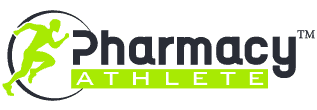Pharmacists on athletes
The role of pharmacists on athletes‘ health teams is becoming an increasingly important part of athletes’ preparation for competition. In all clinical settings, sports pharmacists complement the work of sports physicians, physical therapists, podiatrists, and other health care professionals involved in the care of athletes. The wider role of the sports pharmacist In contrast to the unique setting of medical and pharmaceutical services in international competitions, sports pharmacists must contribute to the health of athletes in a variety of other clinical settings. Sports pharmacists work with athletes as individual patients, within sports organizations, in anti-doping agencies, or as part of teams operating outpatient clinics and sporting event pharmacies.
Opportunities for Pharmacists
While there are few opportunities to work with professional athletes, there are many opportunities for pharmacists to apply their knowledge and train with athletes. With the increased use of supplements and natural products by athlete patients, pharmacists can also play an important role in educating athlete patients against unintentional doping violations. We must remember that patient education plays a huge role in promoting the clean movement of athlete patients, and pharmacists have the unique knowledge and training to help patients complete their education.
As sports medicine professionals, we must fully understand these concepts, develop an understanding of the real risks of using nutritional supplements, and develop a comprehensive policy and educational program that provides clear guidance to our student athletes who promote safe and healthy approaches to achieving their goals. performance goals. In most cases, sports medicine staff will be responsible for informing student athletes about prohibited substances and for recommending and reviewing nutritional supplements that student athletes intend to use.
The Special Role of Sports Pharmacists for Elite Athletes
Unfortunately, there are circumstances in which an athlete may take a drug that is on the World Anti-Doping Agency’s (WADA) Prohibited List. If athletes need a prohibited drug for a valid medical reason, pharmacists may advise them to contact their governing sports association and request an exception. Another way pharmacists can help drug tested athletes is to encourage them to contact their sports state associations to make sure their medications and supplements are not banned.
One way pharmacists can help prevent doping is by advising athletes to use banned, contaminated, or suspected nutritional supplements. A pharmacist with a background in sports pharmaceuticals can help identify, manage, and monitor athletes in need of performance-enhancing supplements who may otherwise experience side effects. The provision of drug information and educational services to athletes, coaches and fans may also fall within the scope of a “sports pharmacy“.
The National Center for Drug Free Sports provides drug prevention services to sports organizations. Dr. Marina Suzuki, associate professor at the University of the Pacific’s School of Pharmacy and director of the Office of Global Pharmaceutical Education and Research, said anti-doping efforts will be undertaken to promote “sportsmanship” among participating athletes. USADA Pharmacist. She has been involved in anti-doping initiatives through her internship with the United States Anti-Doping Agency (USADA), participation in the Partnership for Clean Competition (PCC), and education of athletes on anti-doping policies and banned lists, pharmacists.
Health Students and sports medicine professionals.
Dr. Marina Suzuki is the author of an article published in the August 2021 issue of the American Journal of Pharmacy Education (AJPE) advocating the importance and uniqueness of sports pharmacy and calling on pharmacists to play a broader role in promoting safe use effect. American Journal of Pharmacy Education (AJPE) Drugs in Patient Athletes.
Sports pharmacists are specifically trained to recognize and avoid illegal prescriptions, recommend appropriate over-the-counter medications, and discuss the risks associated with nutritional supplements or nutritional products (we know high-performing athletes will use these and we cannot rule out the risk.
While these resources are highly valued and much-needed among athletes, one resource is surprising: the role of the sports pharmacist. Although several authors have developed recommendations for pharmacists on the management of common sports injuries and advising/advice to athletes [10,11,12,13,14,15,16], these recommendations are not based on original research and systems study. Sports pharmacy has not been reviewed before. This systematic review aimed to examine the literature to identify exercise-related health needs that could benefit from the experience of pharmacists, as well as attitudes, beliefs and knowledge of pharmacists, athletes and other key stakeholders about the role pharmacists can play.
Take medicine. Athlete Care.
To a lesser extent, the role of pharmacists in various aspects of sports and competitive culture is limited in the literature, ranging from advising on non-competitive/individual fitness activities and local club sports, to advising elite athletes participating in the Olympics or other events Give suggestion. [5, 6, 7, 8, 9].
Sports pharmacists can be the link between aspiring unfunded athletes and their journey into professional sports to educate, guide and ensure the athlete has a solid foundation ready for their next steps in elite sport. Pharmacists who are interested in sports pharmaceuticals but cannot serve as doping control officers at the Olympics may still assist athletes through community and college student pharmacies. Another issue that highlights the adaptability of sports pharmacists is the protection of young athletes or athletes who have limited access to professional teams and/or public funding. It makes sense that the anti-doping system should use pharmacists to help educate athletes, advise on banned and over-the-counter substances, improve the knowledge of Athlete Support Personnel (ASPs) and work with team doctors.
Pharmacists are an excellent source of drug information for anyone at the crossroads of strenuous exercise and drug decision making—upgrading under the guidance of a competent pharmacist can do just that for competitive athletes. Dr. Marina Suzuki wonders how many pharmacists today would confidently deliver treatments or dispense medicines if patients called themselves athletes who should be tested for performance-enhancing drugs and compete for medals soon.


